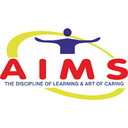BTech in Biomedical Engineering (BME)
OR
Prepared by Docthub Courses Team ∣
Last updated on 02 Aug 2024
Overview
Bachelor of Technology in Biomedical Engineering (B.Tech. in BME) is an undergraduate program that combines the principles of engineering and biology to solve problems in healthcare and medicine.
Biomedical engineering with PCB is designed to provide students with the technical skills and knowledge required to design, develop, and maintain medical equipment, prosthetics, and other devices used in healthcare.
The B.Tech. in BME program is a four-year undergraduate program that focuses on the application of engineering principles to the field of medicine.
Students learn about the design, development, and maintenance of medical equipment, prosthetics, and other devices used in healthcare.

Table of Content
Highlights
| Details | Bachelor of Technology in Biomedical Engineering (B.Tech. in BME) |
| Level | Bachelor’s degree |
| Duration | 4 Years |
| Exam Type | Semester-wise |
| Course Fees | INR 50,000-2 Lakhs |
| Min. Qualification Requirement | 10+2 in the science stream with physics, chemistry, and biology. |
| Average Salary | INR 3-8 Lakhs |
| Selection Process | Entrance Exam/Merit-based/ JEE Main, BITSAT, VITEEE |
| Min. Aggregate Score | 50% or more in 10+2 in science stream |
Eligibility
The b tech in biomedical engineering eligibility includes candidates who have completed their 10+2 education with Physics, Chemistry, and Mathematics as compulsory subjects.
Fees
The fees for biomedical engineering with pcb vary depending on the college or university offering the course. Average fees range between INR 50,000 to 2 lakhs.
Who Should Do This Course?
This course is ideal for students who have an interest in both engineering and biology. It is suitable for those who want to use their technical skills to solve problems in healthcare and medicine.
Why Study This Course?
Studying B.Tech. in BME provides students with a unique opportunity to combine their passion for engineering and biology. This course offers a wide range of career opportunities in healthcare technology and provides students with the skills and knowledge required to make a difference in people's lives.
Admission Process
The admission process for the B.Tech. in BME program varies depending on the college or university offering the course. It typically involves the following steps:
Eligibility Criteria
- Educational Background: Applicants must have successfully completed their 10+2 (Senior Secondary School Certificate) or equivalent examination from a recognized board or university with a minimum of 50% marks in Physics, Chemistry, and Mathematics. Some institutes may require higher marks, such as 75% or 80%.
- Entrance Exams: Admission to B.Tech. in BME programs is primarily based on the performance in national or state-level engineering entrance examinations. These exams assess the applicant's aptitude for engineering and science subjects. Common entrance exams include:
- JEE Main and Advanced: The Joint Entrance Examination (Main) is a nationwide screening test, while JEE Advanced is for those who qualify in JEE Main and seek admission to top-ranked engineering institutes like IITs and NITs.
- Other Entrance Exams: Other recognized entrance exams include WBJEE (West Bengal Joint Entrance Examination), IMU CET (Institutions of Eminence CET), SRMJEEE (SRM Joint Entrance Examination), and MET (Manipal Engineering Test).
Application Process:
- Registration: Applicants need to register for the chosen entrance exam on the respective exam authority's website.
- The registration process typically involves filling out an online application form, uploading required documents, and paying the application fee.
- Appear in Entrance Exam: Applicants must appear for the chosen entrance exam at the designated exam center.
- The exam format varies depending on the exam, but it generally includes multiple-choice questions covering Physics, Chemistry, and Mathematics.
- Score Reporting: Upon completion of the entrance exam, the exam authority releases the results, typically in the form of ranks or percentiles.
- Applicants can access their scores through the designated website.
- Counseling and Seat Allocation: Based on the entrance exam scores, eligible applicants are invited for counseling and seat allocation processes.
- Counseling involves choosing colleges and preferences, while seat allocation assigns seats to institutes based on rank, preferences, and availability.
- Admission and Payment: Once a seat is allocated, applicants need to accept the offer letter and complete the admission formalities.
This usually involves submitting required documents, paying the admission fee, and completing any additional requirements specified by the institute.
Documents Required:
The following documents are typically required for admission to the BSW program:
- 10+2-mark sheet
- Entrance exam score card
- Character certificate
- Migration certificate (if applicable)
- Medical fitness certificate
Entrance Exam
Admission to the B.Tech. in the BME program is based on the entrance exams mentioned below.
| Entrance Exams | Body Conducting Entrance Exams |
| Joint Entrance Examination (Main) | National Testing Agency (NTA) |
| Joint Entrance Examination (Advanced) | Indian Institutes of Technology (IITs) |
| SRM Joint Engineering Entrance Exam (SRMJEEE) | SRM Institute of Science and Technology (SRMIST) |
| Manipal Entrance Test (MET) | Manipal Academy of Higher Education (MAHE) |
| Vellore Institute of Technology Engineering Entrance Examination (VITEEE) | Vellore Institute of Technology (VIT) |
| Indian Maritime University Common Entrance Test (IMU CET) | Manipal University |
Syllabus
The syllabus for the B.Tech. in the BME program includes subjects such as Anatomy and Physiology, Biomedical Instrumentation, Medical Imaging Systems, Biomaterials, Biomechanics, etc.
| Year/Semester | Subjects |
| YEAR 1 Semester I and II | Engineering Mathematics I (Calculus and Differential Equations) Engineering Physics I (Mechanics and Waves) Engineering Chemistry I (Inorganic Chemistry) Engineering Mechanics I (Statics) Engineering Graphics and Design Programming for Engineers Human Anatomy and Physiology |
Engineering Mathematics II (Linear Algebra and Vector Calculus) Engineering Physics II (Electricity and Magnetism) Engineering Chemistry II (Organic Chemistry) Engineering Mechanics II (Dynamics) Basic Electronics Biomedical Terminology and Communication Skills Introduction to Biomedical Engineering | |
YEAR 2
| Engineering Mathematics III (Probability and Statistics) Engineering Physics III (Electronics and Modern Physics) Engineering Chemistry III (Analytical Chemistry) Strength of Materials Electrical Circuits and Networks Biochemistry Biomedical Instrumentation |
Engineering Mathematics IV (Numerical Methods) Engineering Physics IV (Thermodynamics and Statistical Physics) Engineering Chemistry IV (Physical Chemistry) Engineering Mechanics III (Mechanics of Fluids) Electronics and Analog Circuits Biomechanics Biomedical Sensors and Measurements | |
| YEAR 3 Semester V and VI | Engineering Optimization Biomedical Systems Analysis Biomedical Signal Processing Medical Imaging Techniques Biomaterials Biomechanics of the Musculoskeletal System Biomedical Design and Prototyping |
Artificial Intelligence and Machine Learning in Biomedical Engineering Biomedical Robotics Biomedical Rehabilitation Engineering Biomedical Electronics Bioinstrumentation Design Biomechanics of the Cardiovascular System Biomedical Elective I | |
YEAR 4
| Biomedical Research Methodology Clinical Engineering Bio entrepreneurship Biomedical Elective II Biomedical Elective III Biomedical Seminar |
Biomedical Ethics and Regulatory Affairs Biomedical Project Biomedical Elective IV Biomedical Elective V Industrial Training or Internship |
Top Private Colleges
Some of the top private Bachelor of Technology in biomedical engineering colleges in India are:
- Manipal Institute of Technology, Manipal
- Vellore Institute of Technology, Vellore
- SRM Institute of Science and Technology, Chennai
- Thapar Institute of Engineering and Technology (TIET), Patiala
- SSN College of Engineering, Chennai
- Amity University, Noida
- Birla Institute of Technology and Science (BITS), Pilani
- Kalinga Institute of Industrial Technology (KIIT), Bhubaneswar
- Sathyabama Institute of Science and Technology (SITS), Chennai
- Lovely Professional University (LPU), Phagwara
Top Govt Colleges
Some of the top government Bachelor of Technology in biomedical engineering colleges in India are:
- IIT Madras, Chennai
- IIT Delhi, New Delhi
- IIT Bombay, Mumbai
- IIT Kharagpur, Kharagpur
- IIT Guwahati, Guwahati
- IIT Hyderabad, Hyderabad
- Jadavpur University, Kolkata
- VIT Vellore, Vellore
- Anna University, Chennai
- IIT Indore, Indore
Scope
The scope of B.Tech. in BME is vast. Graduates can work as biomedical engineers, medical equipment designers, prosthetics designers, research associates, etc.
They can also pursue higher studies such as M.Tech., MBA, or Ph.D.
Further Study Options
After completing B.Tech. in BME, graduates can pursue higher studies such as M.Tech., MBA, or Ph.D. They can also pursue courses in specialized areas such as Biomedical Instrumentation, Medical Imaging Systems, Biomaterials, Biomechanics, etc.
Career Opportunities After This Course
Graduates of B.Tech. in BME can work as biomedical engineers, medical equipment designers, prosthetics designers, research associates, etc. Bachelor of Technology in biomedical engineering jobs include working in hospitals, research labs, medical equipment manufacturing companies, etc.
Salary
The Bachelor of Technology in biomedical engineering salary varies depending on the job profile and organization they work for. On average, they can earn anywhere between 3-8 lakhs per annum.
Explore colleges for this course
Quick Go Links

Explore this course by location..
by States
by Cities
Related Job Roles
Biomedical Engineer
Related Job Vacancies
View All 133 Jobs

FAQS
What are the subjects for Biomedical Engineering Bachelor of Technology?
The subjects for Biomedical Engineering Bachelor of Technology include Physics, Mathematics, Chemistry, Anatomy, Physiology, Biochemistry, Biomechanics, Biomaterials, Medical Electronics, Medical Instrumentation, Digital Signal Processing, Biostatistics, Medical Imaging, and Clinical Engineering.
What is Biomedical Engineering?
Biomedical Engineering is a field that combines principles of engineering and biology to solve problems in healthcare and medicine.
It involves the design, development, and maintenance of medical equipment, prosthetics, and other devices used in healthcare.
What is a Bachelor of Technology in Biomedical Engineering (BTech BME)?
A Bachelor of Technology in Biomedical Engineering (BTech BME) is an undergraduate program that provides students with the technical skills and knowledge required to design, develop, and maintain medical equipment and devices used in healthcare.
It is a four-year program that combines principles of engineering and biology.
What are the benefits of pursuing a BTech BME degree?
Pursuing a BTech BME degree provides numerous benefits, including:
- Opportunities to work in healthcare technology
- Combining a passion for engineering and biology
- Wide range of career options
- Making a difference in people's lives
- Opportunities for research and innovation in healthcare technology
What are some of the career options for B.Tech BME graduates?
BTech BME graduates can pursue a wide range of career options in healthcare technology, including:
- Biomedical Engineer
- Clinical Engineer
- Medical Device Designer
- Medical Equipment Maintenance Technician
- Rehabilitation Engineer
- Research and Development Scientist
- Sales Engineer
- Technical Support Engineer
Related Course titles

Qualifications
12th Science PCB
Related Specialty
Biomedical Science
Biomedical Imaging
Biomedical Technology




